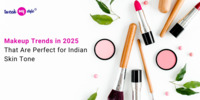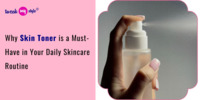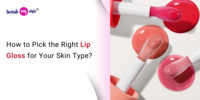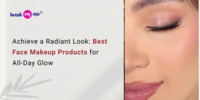- Jun 11, 2025
- Skincare Tips
- 879
Share this post on:
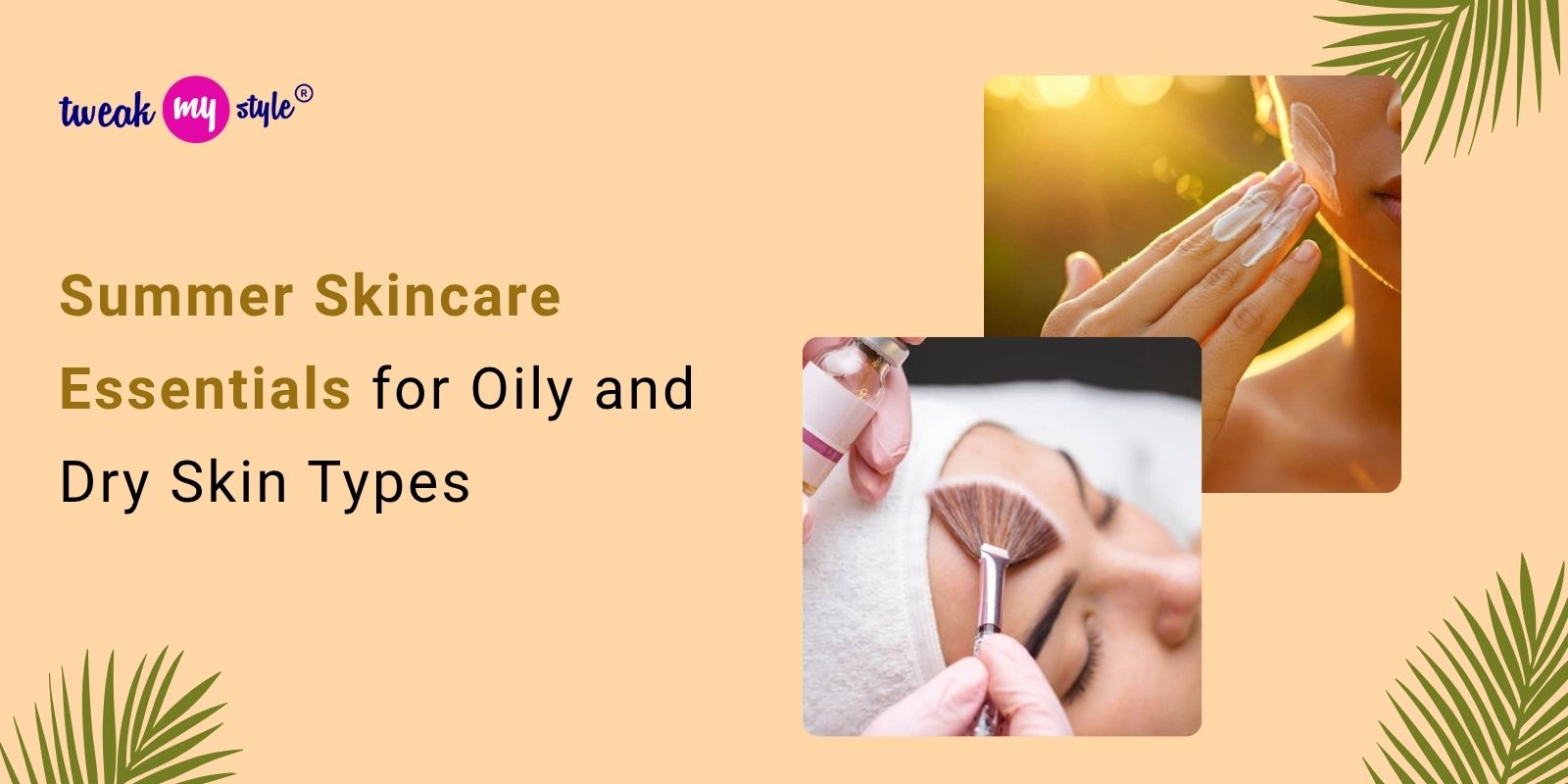
Summer is here! Sunshine, longer days, and… a whole new set of skincare challenges. The heat and humidity can wreak havoc on our skin, whether you’re battling breakouts or desperately clinging to moisture. Figuring out the right routine for your skin type can feel overwhelming, but don't worry, we’re here to help! This guide breaks down summer skincare essentials, tailored specifically for oily and dry skin types. Let's dive in!
Why Summer Skincare is Different
The changes in summer aren’t just about temperature. Increased sun exposure, sweat, and humidity significantly impact our skin:
- Sun Damage: UV rays are at their peak in summer, accelerating aging and increasing the risk of sunburn and skin cancer.
- Increased Oil Production (for oily skin): Heat stimulates sebaceous glands, leading to more oil production and potential breakouts.
- Dehydration (for all skin types): Sweat, while seemingly hydrating, can actually dehydrate the skin by stripping away natural oils. Dry skin suffers even more intensely.
- Pollution & Environmental Stressors: Summer often brings increased pollen and other environmental irritants.
Understanding Your Skin Type: Oily vs. Dry
Before we recommend products, let's clarify the differences. This will help you choose the right essentials.
- Oily Skin: Characterized by excess sebum (oil) production, enlarged pores, a shiny appearance, and a tendency towards blackheads, whiteheads, and breakouts.
- Dry Skin: Lacks moisture, often feels tight and flaky, may be itchy or irritated, and is prone to fine lines and wrinkles. Dry skin doesn't necessarily mean dehydrated, but it often is, and the two are closely linked.
Summer Skincare Essentials: Oily Skin – Taming the Shine & Preventing Breakouts
In summer skincare for Oily skin needs a focus on oil control, pore cleansing, and preventing breakouts, all while maintaining a healthy skin barrier.
- Cleanser – Gentle, Yet Effective:
- What to look for: Gel or foaming cleansers with ingredients like salicylic acid (BHA) or tea tree oil can help unclog pores and reduce oil production. Avoid harsh soaps that can strip the skin and trigger even more oil production.
- Example Ingredients: Salicylic acid, tea tree oil, niacinamide.
- Frequency: Twice daily – morning and evening.
- Toner – Balancing Act:
- What to look for: Alcohol-free toners that help balance the skin's pH and remove any remaining traces of cleanser. Look for ingredients that can help reduce oiliness and minimize pores.
- Example Ingredients: Witch hazel (use with caution – can be drying), niacinamide, green tea extract.
- Application: After cleansing, apply with a cotton pad.
- Serum – Targeted Treatment:
- What to look for: Lightweight, oil-free serums. Niacinamide is a superstar for oily skin – it helps regulate oil production, reduce pore size, and brighten the complexion.
- Example Ingredients: Niacinamide, hyaluronic acid (yes, even oily skin needs hydration!), Vitamin C (antioxidant protection).
- Application: Apply a few drops to clean skin before moisturizer.
- Moisturizer – Light & Oil-Free:
- What to look for: Even oily skin needs moisture! Choose a lightweight, oil-free, non-comedogenic moisturizer (won't clog pores). Gel moisturizers are often a good choice.
- Example Ingredients: Hyaluronic acid, glycerin, ceramides.
- Sunscreen – Absolutely Essential!
- What to look for: Broad-spectrum SPF 30 or higher. Look for oil-free and non-comedogenic formulas. Mineral sunscreens (zinc oxide, titanium dioxide) are often well-tolerated by oily, acne-prone skin.
- Application: Every morning, as the last step in your skincare routine. Reapply every two hours when exposed to sunlight.
- Mask – Weekly Reset:
- What to look for: Clay masks are fantastic for absorbing excess oil and drawing out impurities.
- Frequency: 1-2 times per week.
Summer Skincare Essentials: Dry Skin – Replenishing Moisture & Protecting the Barrier
In summer skincare for Dry skin needs a focus on hydration, moisture retention, and protecting the delicate skin barrier.
- Cleanser – Creamy & Gentle:
- What to look for: Avoid harsh, foaming cleansers. Opt for creamy, hydrating cleansers that won’t strip away natural oils.
- Example Ingredients: Ceramides, glycerin, shea butter.
- Frequency: Once daily (morning or evening). Double cleansing at night (with an oil-based cleanser followed by a gentle cream cleanser) can be very beneficial.
- Toner – Hydrating & Soothing:
- What to look for: Avoid alcohol-based toners. Choose hydrating toners with ingredients that help lock in moisture.
- Example Ingredients: Hyaluronic acid, rosewater, aloe vera.
- Serum – Intense Hydration:
- What to look for: Serums packed with hydrating ingredients like hyaluronic acid, squalane, or Vitamin E.
- Example Ingredients: Hyaluronic acid, squalane, Vitamin E, ceramides.
- Moisturizer – Rich & Barrier-Repairing:
- What to look for: A rich, creamy moisturizer that helps replenish lost moisture and repair the skin barrier.
- Example Ingredients: Ceramides, shea butter, squalane, fatty acids.
- Sunscreen – Crucial Protection:
- What to look for: Broad-spectrum SPF 30 or higher. Look for moisturizing formulas.
- Application: Every morning, as the last step in your skincare routine. Reapply every two hours when exposed to sunlight.
- Mask – Deep Moisture Boost:
- What to look for: Hydrating sheet masks or cream masks with ingredients like honey, avocado, or hyaluronic acid.
- Frequency: 1-2 times per week.
- Facial Oil (Optional): Adding a few drops of facial oil to your moisturizer or applying it directly to the skin can provide an extra layer of hydration and lock in moisture.
Important Considerations for All Skin Types
- Hydration from Within: Drink plenty of water throughout the summer to keep your skin hydrated from the inside out.
- Diet: A diet rich in fruits, vegetables, and healthy fats can contribute to healthy skin.
- Exfoliation (Gentle): Exfoliating 1-2 times per week can help remove dead skin cells and improve product absorption. Be gentle – harsh scrubbing can irritate the skin.
- Avoid Touching Your Face: This helps prevent the spread of bacteria and can reduce breakouts.
- Consult a Dermatologist: If you have persistent skin concerns, consult a dermatologist for personalized advice.
